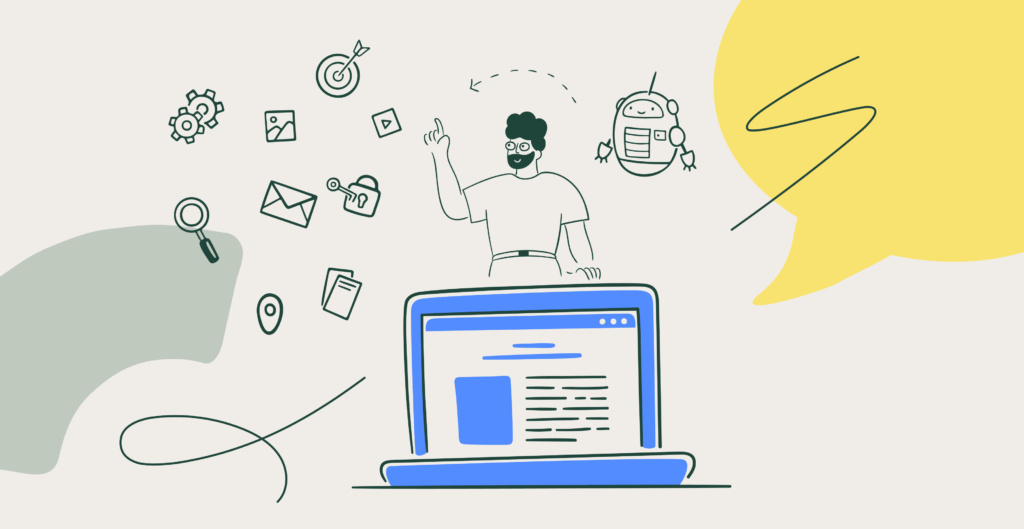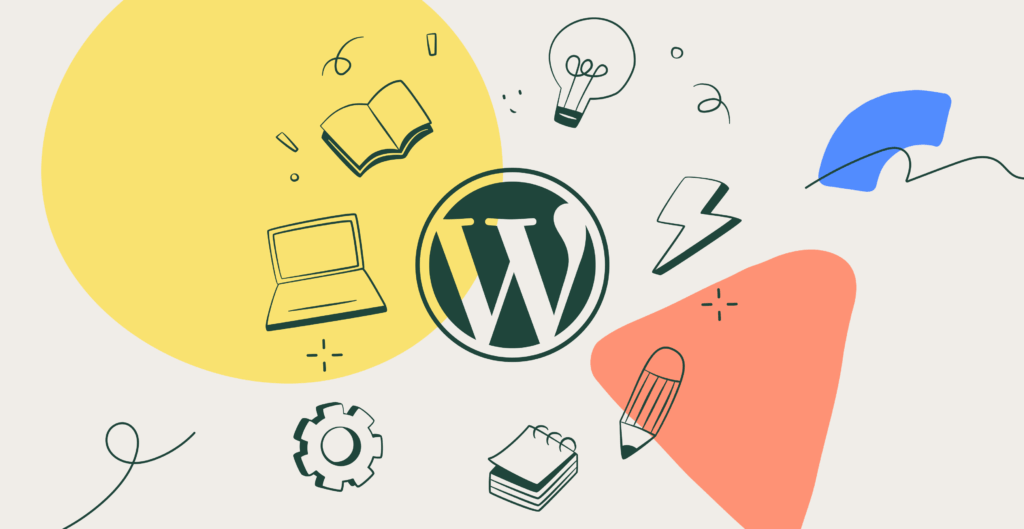Why Your Digital Agency Needs a Client Hack Day
Author
Kayla Keizer
Date
December 4, 2020
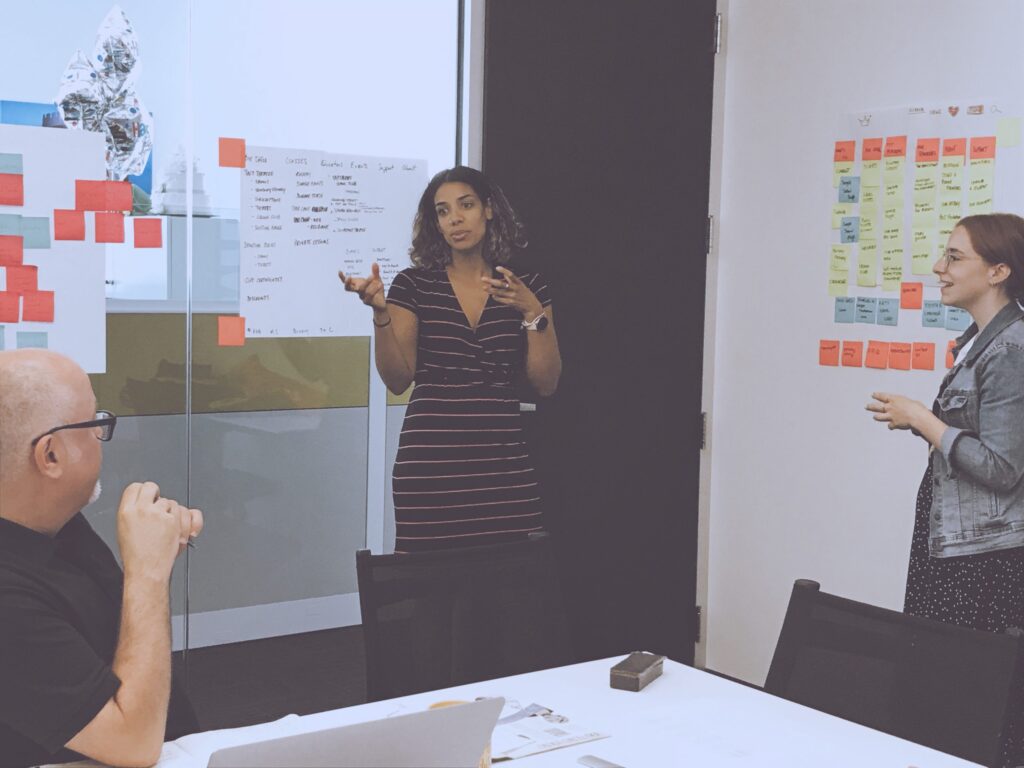
Earlier this year I agreed to give a presentation on Plank’s trademark Hack Day at the Digital Project Management Summit with the Bureau of Digital. To say I was bummed that it turned into an online presentation is an understatement, but if 2020 has proven anything it’s that we are capable of adapting. Thus, I switched gears and for my first conference presentation, it was great!
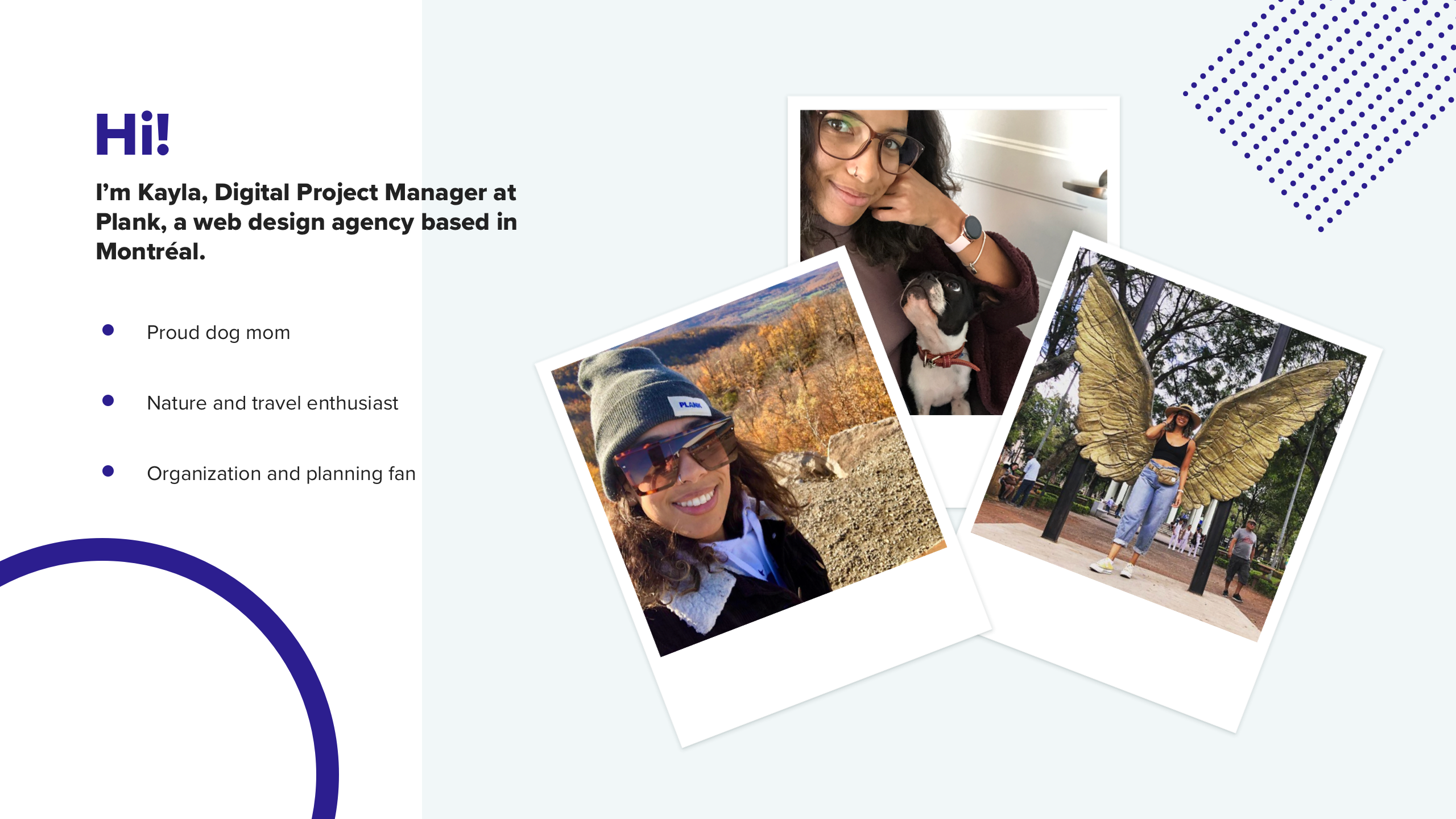
Traditionally projects usually start with a kick-off meeting, at Plank we begin with a Hack Day. Before diving into Hack Days, let’s review what a kick-off meeting is.
What is a Project Kick-off Meeting?
This is typically the first meeting between the project team and the client. Stakeholders on both sides should be present as well as the project sponsor. Generally, it is a one to two-hour Meet and Greet where project cadence is established. Everyone gets updated on the project background, timeline, high-level scope of the project, and we define project success. Communication guidelines are established as well as roles, responsibilities, and approvals.
The kick-off meeting outlines your project charter and/or project expectations: who, what, where, why (value), defining project goals, and how that will be achieved.
The main con about kick-off meetings is that if it doesn’t go smoothly, there are certain pain points that can develop, such as:
- Waiting on client approvals;
- Low stakeholder engagement;
- Miscommunication on scope, roles, responsibilities, expectations,sign-off, etc;
- Lack of collaboration (i.e.: when the client or sponsor disappears for 6 months only to return hoping to have a completed project… yeah, not ideal).
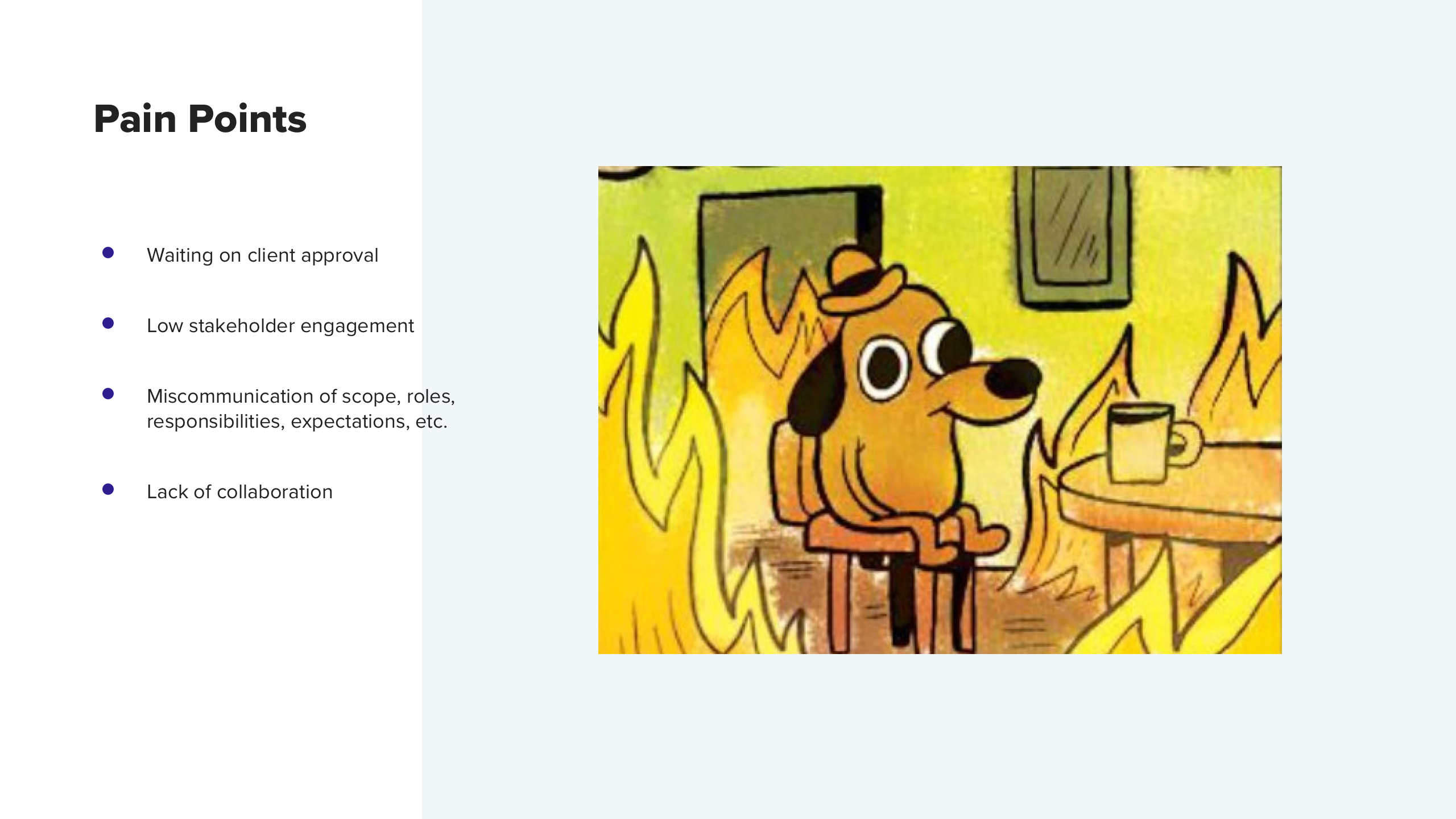
So, what’s the solution to all these pain points that many digital agencies are familiar with?
Plank’s Client Hack Day
In order to curb these risks, we found starting the project strong is key and getting to the problem(s) or pain points right away gives clients and stakeholders motivation and encouragement.
So naturally, we decided that sticking our team and our clients in a room all day was the perfect way to iron things out. Our Hack Day concept was inspired by the 1-week Sprint that many tech companies know and love. If you want more info on sprints, check out this book ‘Sprint’ By Jack Knapp developed at Google. Although this process has improved how we work with clients, I’m not going to lie, the day usually starts out quite rocky.
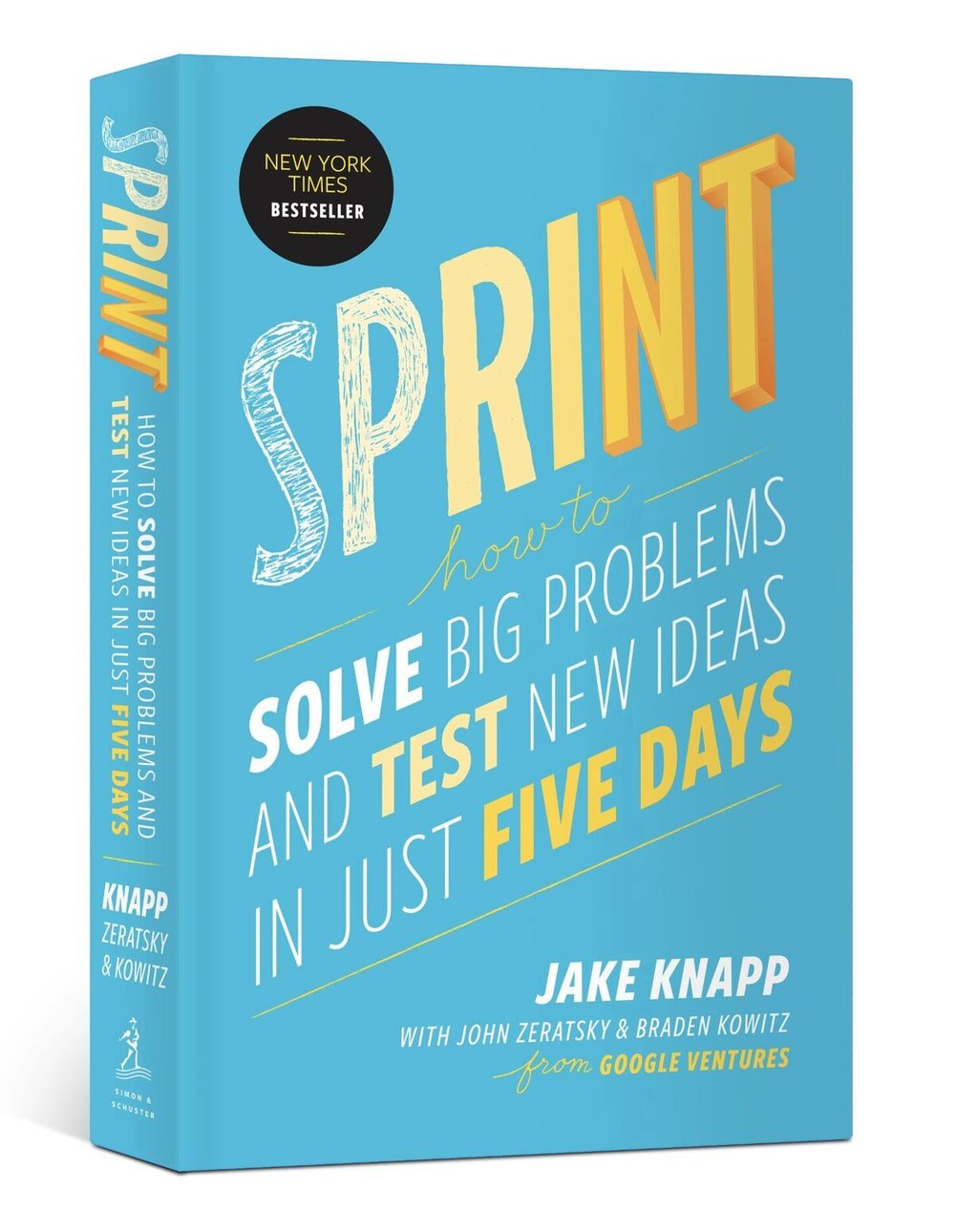
The main idea behind Hack Day is to book major project influencers for the day. Whereas Knapp’s book has a 1-week Sprint, we give ourselves a time cap of one day to get to the centre of the project. Having the full day makes the meeting less of a Q&A session and more of a team brainstorming. This really allows the client to give you those extra little context nuggets around the who, what, where of the project.
What Does a Hack Day Look Like?
We provide clients with a full-day agenda, including breaks. Do not forget the breaks! Because the day tends to be packed and requires a lot of brainpower, breaks are absolutely crucial.
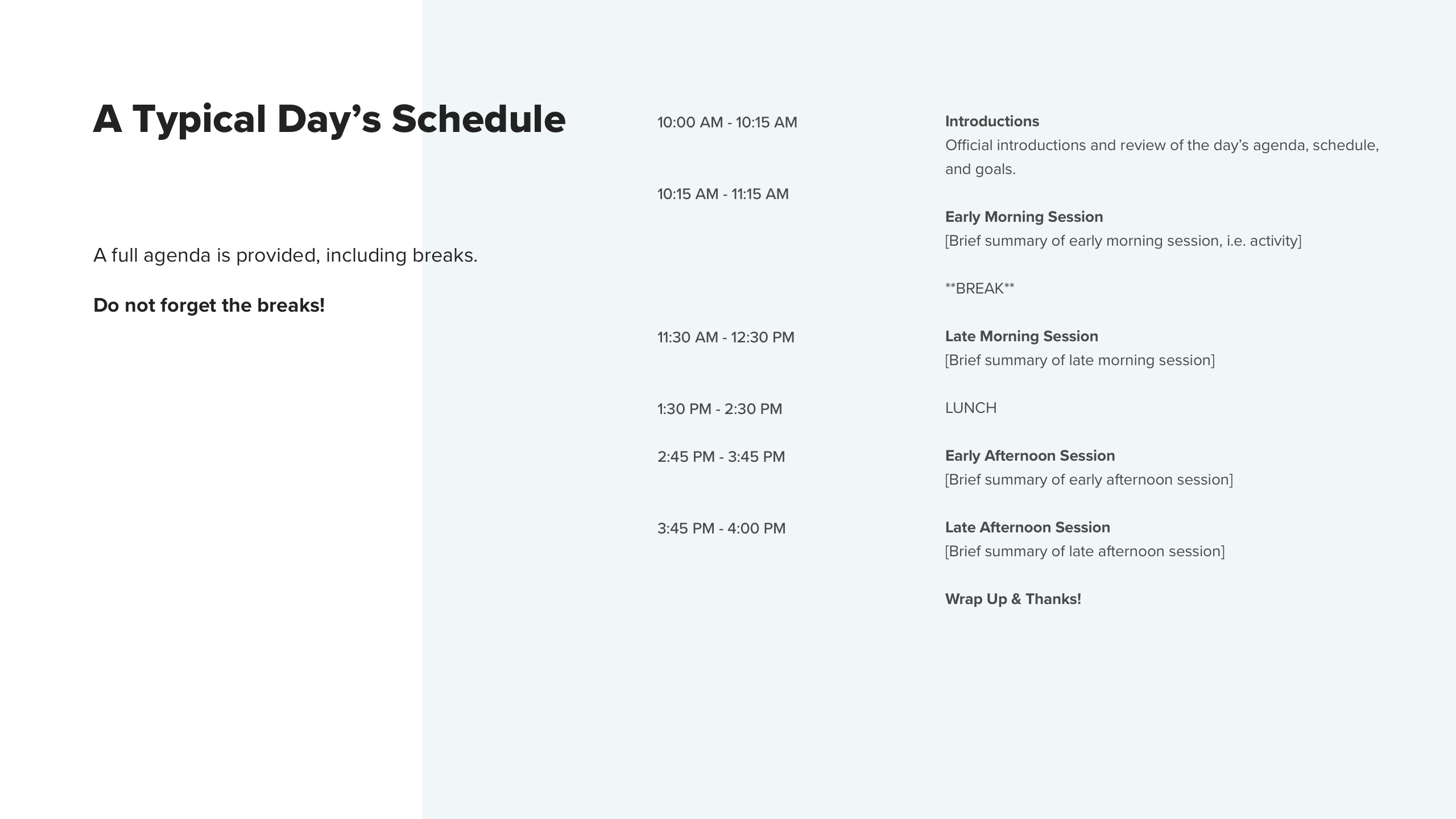
I always start the day with 2 important questions:
- Who are you and what is your role?
- What do you hope to achieve at the end of this project?
You would be surprised that even stakeholders, from the same company and department, and who have all worked together for years, will have a different answer for question 2. That might be awfully confusing, having different goals and competing expectations, but it is a great starting point for everyone to get aligned. It also uncovers valuable insights for the project team on what’s important.
At the end of the day, we make sure to pin down one or two goals/objectives that we will focus on. The number of goals/objectives always depends on the size of the project. The larger the project the more goals there could be. Even if the project scope is small, having extra context provides us with a “nice-to-have” list, which can be added if time and budget allow.
How to Prepare
Our process does require a fair amount of preparation. I ask the project team to be familiar with the current site, RFP, proposal, and any additional preliminary project documents before we start our day. All this pre-homework helps the team participate effectively throughout the day and give their opinions on what could be improved. The client also has a clear idea of pain points which leads us to the next segment of the day: choosing your challenges.
We typically choose 3 challenges for each client project, but the last one is optional based on time constraints. The challenge is used to engage the stakeholders and get down to business.
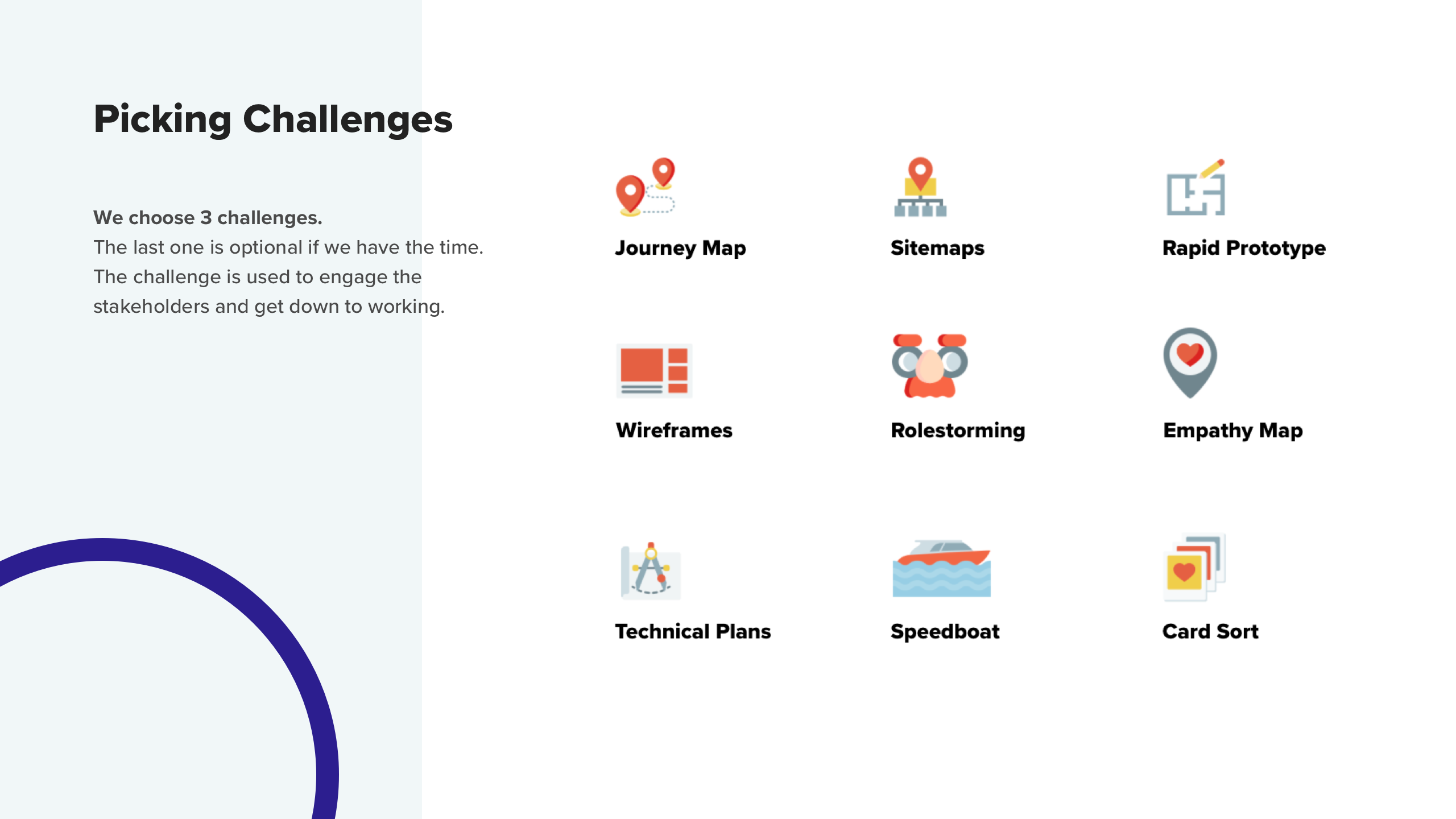
Examples of Challenges:
- Site map discussion
- Design challenge
- Journey map
- Empathy map
- Research or content templates
- Technical plans
- Brainstorming
- MOSCOW – Prioritization
The point of the challenge is to get everyone involved and working together. This usually means sticky notes, paper, and whiteboard notes anywhere and everywhere. When there is a big group, I usually split them into teams and then each team has to present what they have done. For smaller teams, we will all work together and appoint one or two people to write on a board or showcase their inspiration for our mood board.
Clients love being hands on early on in the process and they love to feel like they are helping create a solution. At the end of the day, we walk away with a tentative site map, IA plans, or preliminary wireframes. Clients leave feeling accomplished and we leave ready to continue the project.
This exercise also helps with communication and team vibes.
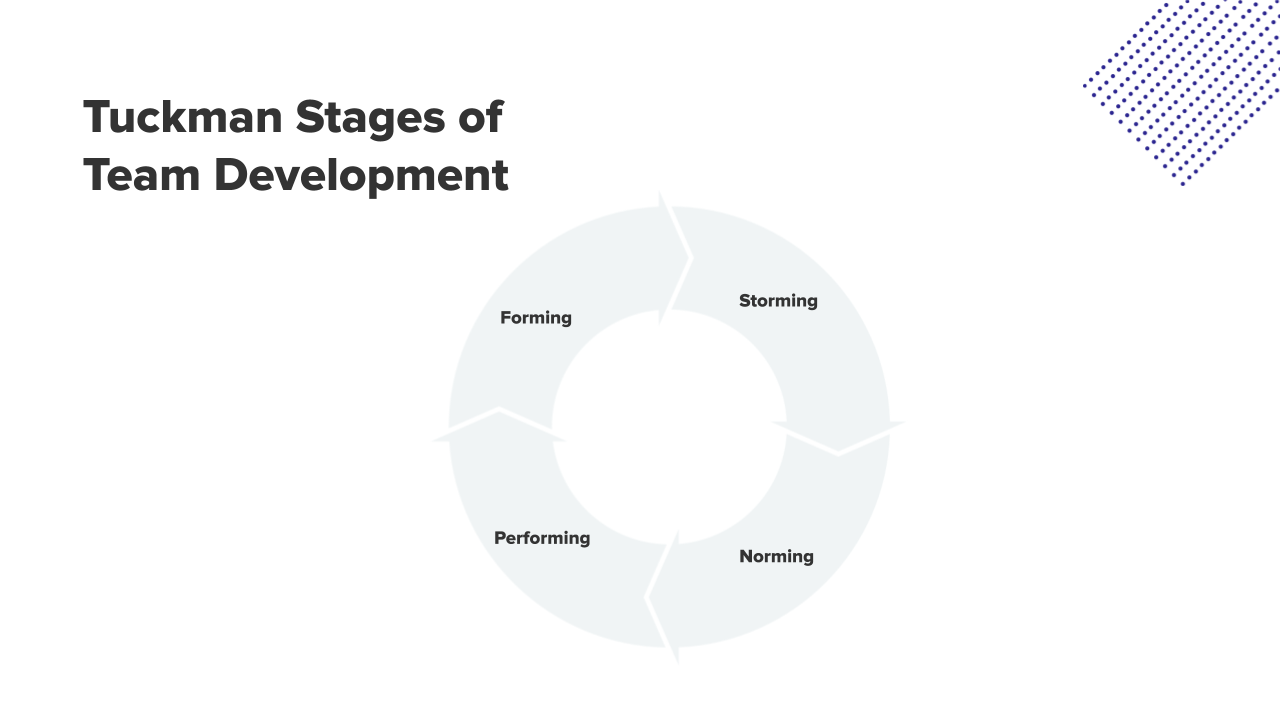
Another benefit of our Hack Day is that it speeds up the process of Team Development (read more about Tuckman’s stages of team development at https://bit.ly/2JyXq4M). When you are working with a new client, a lot of the time they don’t know about the web development process and how we work at Plank. Hack Day allows you to get through Forming and Storming, and start the Norming stage right away.
Tuckman Stages of Team Development
- Forming
- Storming
- Norming
- Performing
On this one day, we are able to get to Norming and cut down the back and forth emails which are more easily translated in person.
Remote Hack Days
Due to the pandemic, we’ve decided to spread the day over one week. We realized that spending an entire day over Zoom isn’t ideal for anyone. Spreading the Hack Day over three days throughout the week is less overwhelming.
This is how we split our Hack Day:
- Meet & Greet (with the same two questions above)
- Challenge 1
- Challenge 2
- Challenge 3
I book 90 minute meetings, but they can be shorter, as sometimes we really get into it and it takes more time to come to a consensus.
An Agenda for the week, as well as each session, is provided before we start. In all honesty, doing these meetings remotely takes more planning and preparation. The tools we use to prepare are Miro or Mural. Preparing for the Zoom session also has an onboarding process for your client to familiarize themselves with the virtual whiteboard or tools that we will be using.
I covered a lot here, but the key takeaway is ‘Be Prepared’!
I’ve found organizing and planning a Hack Week much more intensive than planning an in-person meeting. In-person you can rely on the comfort and familiarity of your meeting room where whiteboards and meeting paraphernalia are all ready. We’ve all been on Zoom for almost a year now, but I personally still find conversation flows much more naturally in-person than over Zoom.
Overall Plank Goals
Our main goal is getting our team and our client’s team into a fluid working state. Not just bureaucratically, but also with honest collaboration.
And remember the Tuckman stages of team development, that holds true for working with the client as well. By the end of Hack Day/Week I hope to get to Norming.
Other goals include:
- Sharing an understanding and common language
- Working through a challenge together allows for us the experts to bring the client up to speed as necessary on terminology
- Close up on how the stakeholders think or process – super useful when you need to present alternative solutions
- Defining a scope
- Defining project goals
What are your thoughts on Client Hack Days? Do you think they could benefit your digital agency? Is there something you would do differently?
Follow us on Twitter @plank and let us know what you think!

